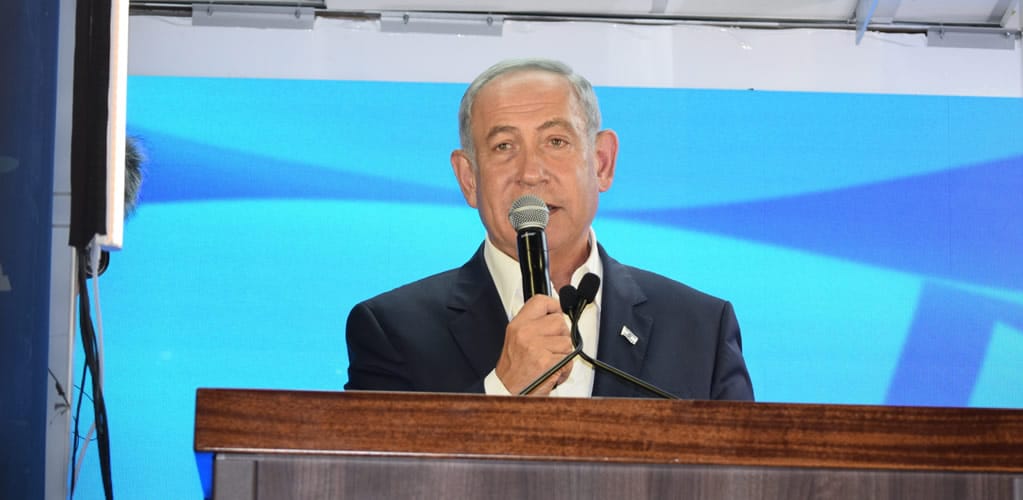Benjamin Netanyahu and Israel are becoming increasingly isolated internationally – they need to listen to their friends
International pressure on Israel is mounting, with recent ICC war crime warrants and ICJ rulings against Israeli actions in Gaza. Norway, Spain, and Ireland recognise Palestinian statehood, signalling shifting global attitudes.

P ressure, both external and internal, is rapidly changing the international landscape for Israel. In 2011, Ehud Barak, then Israel’s defence minister, warned that Israel would face a “diplomatic-political tsunami” of international isolation and censure if it could not resolve the conflict with the Palestinians. More than a decade later, that wave has held off, but the current is moving swiftly in that direction.
In less than a week, three major moves occurred that would have been unthinkable prior to the Gaza War. First, on Monday May 20, the Office of the Prosecutor for the International Criminal Court (ICC) sought warrants for the Israeli prime minister, Benjamin Netanyahu, and the defense minister, Yoav Gallant, for war crimes and crimes against humanity. The prosecutor, Karim Khan KC, also sought warrants for three Hamas leaders for atrocities committed during and after October 7.
Two days later, the governments of Norway, Spain, and Ireland announced that they would recognise Palestinian statehood on May 28. While more than 140 countries in the United Nations already recognise Palestine as a state, most Western European countries maintain that statehood should only be declared through a process of negotiations between Israel and Palestinians, rather than unilaterally. Though largely symbolic, the three states maintained that the move was necessary to preserve any chance of ever reaching a two-state solution.
Then, on Friday May 24, the UN’s International Court of Justice (ICJ) ruled that Israel must halt the current military operation in Rafah. It also ordered Israel to open the Rafah border crossing with Egypt to allow for the entry of humanitarian aid and ensure access to Gaza for investigators and fact-finding missions.
The ruling is part of a broader case brought to the court by South Africa alleging that Israel’s actions in Gaza amount to genocide – an allegation that Israel denies, and which was not decided in this ruling. The decision is considered legally binding, but is unenforceable without action from the UN Security Council, where the US typically exercises its veto in measures relating to Israel.
This comes alongside widespread grassroots activism that has only increased as the war has continued. Weekly demonstrations have persisted in London and other cities around the world, and a wave of protests have rocked college campuses across the United States and Europe.
Even within Israel, protests have intensified in support of a ceasefire to release the hostages still held by Hamas, despite most Israelis still supporting the war itself. There has also been increasing criticism of Netanyahu and his failure to articulate a “day after” strategy for Gaza, including from within his own war cabinet.

— Anti-government protest rally in Haifa. Haifa, Israel -- 25 May 2024.
Digging in
In the short term, the heightened international pressure will likely produce a domestic “circle-the-wagons” effect and mute much of the internal criticism of Netanyahu. Israeli officials were quick to reject the ICJ ruling, and Netanyahu called the ICC warrants a “moral outrage”. Netanyahu has been clear that Israel will keep fighting until its aims are met.
Indeed, just two days after the ICJ ruling, Israel carried out an airstrike reportedly targeting senior Hamas militants that killed at least 45 people in a tent camp in Rafah.
The series of international moves is also likely to produce a doubling down of support for Israel from the Biden administration. Biden has struggled to find a middle ground between supporting Israel’s right to defend itself against Hamas, while disagreeing with Israel’s tactical choices and strategic direction. Indeed, the US president personally criticised the ICC warrants as “outrageous”, and Democrats may join Republicans in seeking sanctions against the ICC.
The White House has also been silent on the ICJ ruling. Administration officials have said that the Rafah operation has not yet crossed Biden’s red lines.
The one area where we may see a change is in the flow of humanitarian aid into Gaza. Both the ICC and ICJ rulings focus largely on this element, and ensuring humanitarian aid reaches civilians in Gaza has also been a major priority for the Biden administration in its discussions with Netanyahu regarding the Rafah offensive.
Israel and Egypt have blamed each other for the cessation of aid into Rafah in recent weeks following Israel’s seizure of the Gaza side of the border. But the rulings will pressure both parties to reach an agreement to reopen the crossing, and the US is already coordinating with Egypt to find work-arounds in the meantime.
Shifting tide
The latest events point to a shifting tide in how the world views the Israel-Palestine conflict more broadly. They indicate that states and international bodies are less willing to cede all leverage on the direction of the conflict to Washington.
The short-term response of Israel – and the US – will undoubtedly be to resist these trends. Israel has often claimed that the UN is biased against it. It does so with some justification – from 2015 and 2022, there were 140 UN General Assembly resolutions adopted against Israel, compared to just 60 against all other countries combined. So Israel will view last week as one of increasing isolation, and the immediate reaction will be to push back at the rulings and go it alone.
But the recent moves by international courts and governments do not equate to an abandonment of Israel or, crucially, an endorsement of Hamas. On the contrary (despite the rhetoric at some protests), the majority of the international community wants to see a secure Israeli state alongside a Palestinian state. But they worry that the Gaza War is diminishing that possibility, pushing the conflict towards even further entrenchment and emboldening extreme positions on both sides.
The atrocities of October 7 understandably nullified the idea of a two-state solution for many Israelis in the near future. But when the war eventually ends, Israel – and Palestinians – will have a choice if they will work with or against a growing international consensus in seeking a resolution to the conflict.
When that time comes, Israel is likely to find an open hand from global partners in steering the conflict towards a pragmatic resolution with regional and international legitimacy.







[Read our Comments Guidelines]